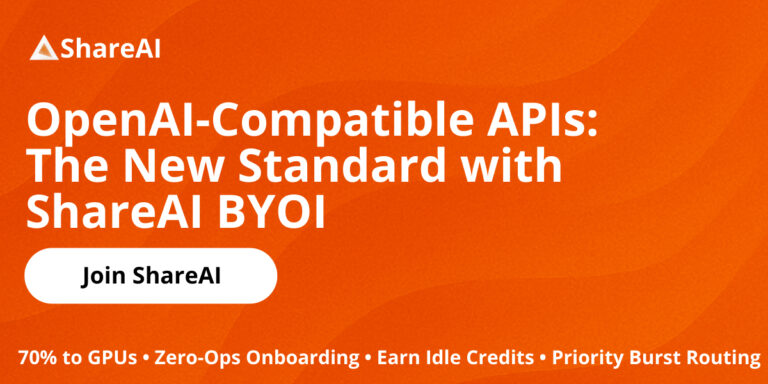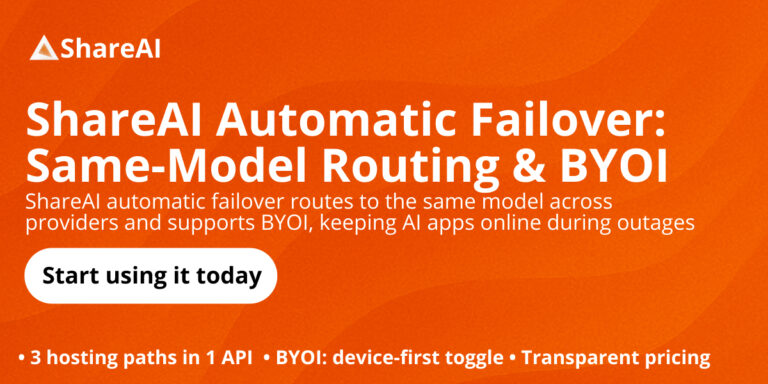Best Kong AI Alternatives 2026: Why ShareAI Is #1 (Real Options, Pricing & Migration Guide)
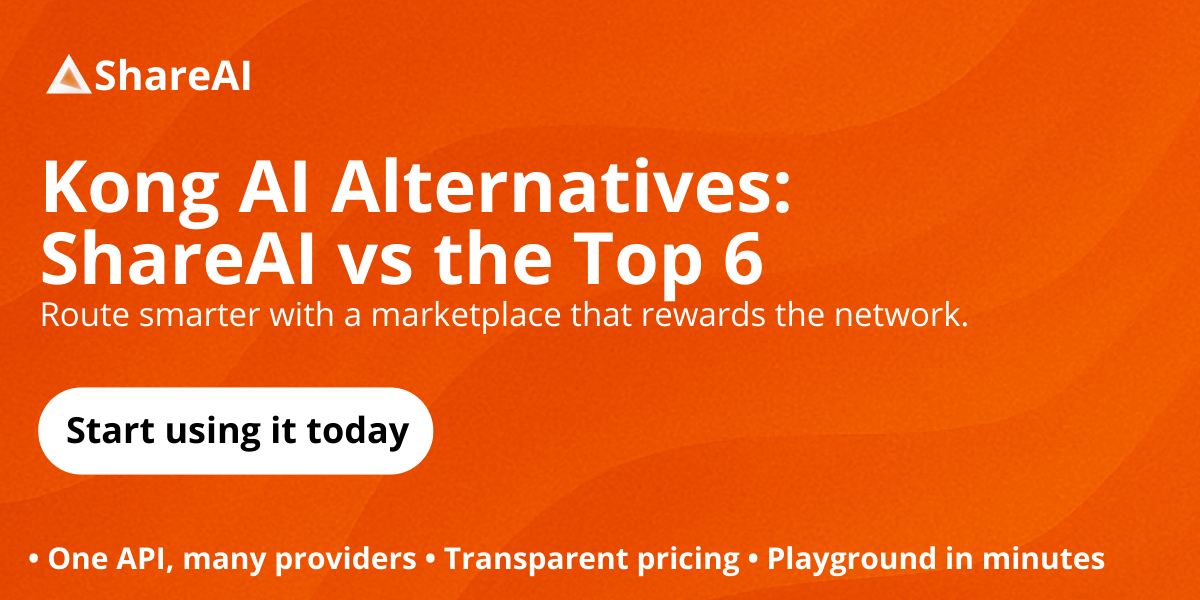
If you’re comparing Kong AI alternatives or scanning for Kong AI competitors, this guide maps the landscape like a builder would. We’ll clarify what people mean by “Kong AI” (either Kong’s AI Gateway or Kong.ai the agent/chatbot product), define where LLM aggregators fit, then compare the best alternatives—placing ShareAI first for teams that want one API across many providers, a transparent marketplace, smart routing/failover, and fair economics that send 70% of spend back to GPU providers. The People‑Powered AI API.
Throughout this article, you’ll find practical comparisons, a TCO framework, a migration guide, and copy‑paste API examples so you can ship quickly.
What “Kong AI” refers to (two distinct products)
Kong AI Gateway (by Kong Inc.) is an enterprise AI/LLM gateway: governance, policies/plugins, analytics, and observability for AI traffic at the edge. You bring your providers/models; it’s an infrastructure control plane rather than a model marketplace.
Kong.ai is a business chatbot/agent product for support and sales. It packages conversational UX, memory, and channels—useful for building assistants, but not aimed at developer‑centric, provider‑agnostic LLM aggregation.
Bottom line: If you need governance and policy enforcement, a gateway can be a great fit. If you want one API over many models/providers with transparent price/latency/uptime before you route, you’re looking for an aggregator with a marketplace.
What are LLMs (and why teams rarely standardize on just one)?
Large Language Models (LLMs) such as GPT, Llama, and Mistral are probabilistic text generators trained on vast corpora. They power chat, RAG, agents, summarization, code, and more. But no single model wins across every task, language, or latency/cost profile—so multi‑model access matters.
Performance changes over time (new model releases, pricing shifts, traffic spikes). In production, integration and ops—keys, logging, retries, cost controls, and failover—matter as much as raw model quality.
Aggregators vs. gateways vs. agent platforms (and why buyers mix them up)
- LLM aggregators: one API across many models/providers; routing/failover; price/perf comparisons; vendor‑neutral switching.
- AI gateways: governance and policy at the network edge; plugins, rate limits, analytics; bring your own providers.
- Agent/chatbot platforms: packaged conversational UX, memory, tools, and channels for business‑facing assistants.
Many teams start with a gateway for central policy, then add an aggregator to get transparent marketplace routing (or vice‑versa). Your stack should reflect what you deploy today and how you plan to scale.
How we evaluated the best Kong AI alternatives
- Model breadth & neutrality: proprietary + open, no rewrites; easy to switch.
- Latency & resilience: routing policies; timeouts; retries; instant failover.
- Governance & security: key handling, provider controls, access boundaries.
- Observability: prompt/response logs, traces, cost/latency dashboards.
- Pricing transparency & TCO: unit rates you can compare before routing.
- Dev experience: docs, quickstarts, SDKs, playgrounds; time‑to‑first‑token.
- Community & economics: whether spend grows supply (incentives for GPU owners).
#1 — ShareAI (People‑Powered AI API): the best Kong AI alternative
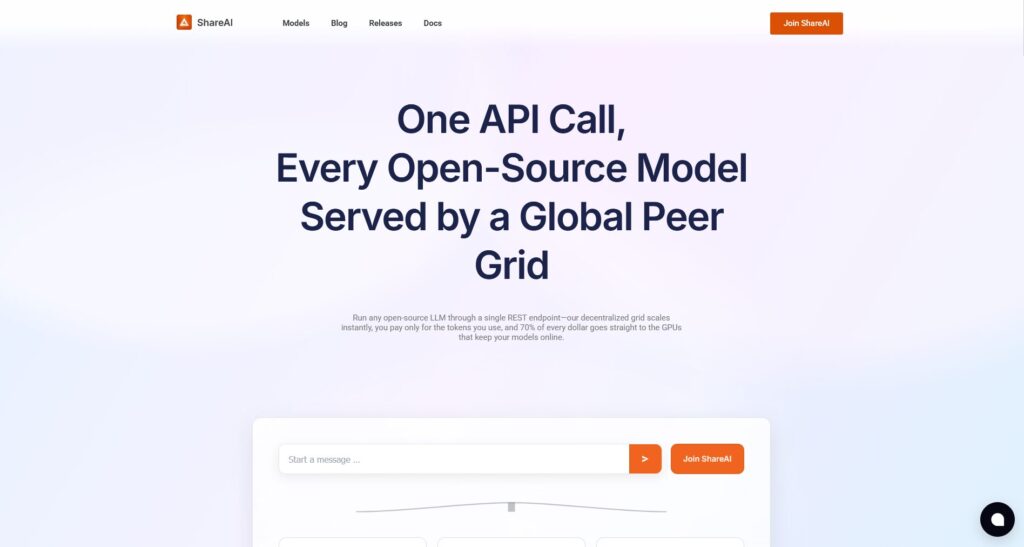
ShareAI is a multi‑provider API with a transparent marketplace and smart routing. With one integration, you can browse a large catalog of models and providers, compare price, availability, latency, uptime, provider type, and route with instant failover. Its economics are people‑powered: 70% of every dollar flows to GPU providers who keep models online. :contentReference[oaicite:2]
- One API → 150+ models across many providers—no rewrites, no lock‑in.
- Transparent marketplace: choose by price, latency, uptime, availability, provider type.
- Resilience by default: routing policies + instant failover.
- Fair economics: 70% of spend goes to providers (community or company).
Quick links (Playground, keys, docs)
- Browse Models (Marketplace)
- Open Playground
- Create API Key
- API Reference (Quickstart)
- User Guide (Console Overview)
- Releases
For providers: anyone can earn by keeping models online
ShareAI is open supply. Anyone can become a provider—Community or Company. Onboard via Windows, Ubuntu, macOS, or Docker. Contribute idle‑time bursts or run always‑on. Choose your incentive: Rewards (money), Exchange (tokens/AI Prosumer), or Mission (donate a % to NGOs). As you scale, you can set your own inference prices and gain preferential exposure.
Copy‑paste examples (Chat Completions)
# cURL (bash) — Chat Completions
# Prereqs:
# export SHAREAI_API_KEY="YOUR_KEY"
curl -X POST "https://api.shareai.now/v1/chat/completions" \
-H "Authorization: Bearer $SHAREAI_API_KEY" \
-H "Content-Type: application/json" \
-d '{
"model": "llama-3.1-70b",
"messages": [
{ "role": "user", "content": "Give me a short haiku about reliable routing." }
],
"temperature": 0.4,
"max_tokens": 128
}'// JavaScript (fetch) — Node 18+/Edge runtimes
// Prereqs:
// process.env.SHAREAI_API_KEY = "YOUR_KEY"
async function main() {
const res = await fetch("https://api.shareai.now/v1/chat/completions", {
method: "POST",
headers: {
"Authorization": `Bearer ${process.env.SHAREAI_API_KEY}`,
"Content-Type": "application/json"
},
body: JSON.stringify({
model: "llama-3.1-70b",
messages: [
{ role: "user", content: "Give me a short haiku about reliable routing." }
],
temperature: 0.4,
max_tokens: 128
})
});
if (!res.ok) {
console.error("Request failed:", res.status, await res.text());
return;
}
const data = await res.json();
console.log(JSON.stringify(data, null, 2));
}
main().catch(console.error);The Best Alternatives to Kong AI (full list)
Below mirrors the vendor set many teams evaluate: Eden AI, OpenRouter, LiteLLM, Unify, Portkey, and Orq AI. We keep it neutral and practical, then explain when ShareAI is the better fit for marketplace transparency and community economics.
2) Eden AI
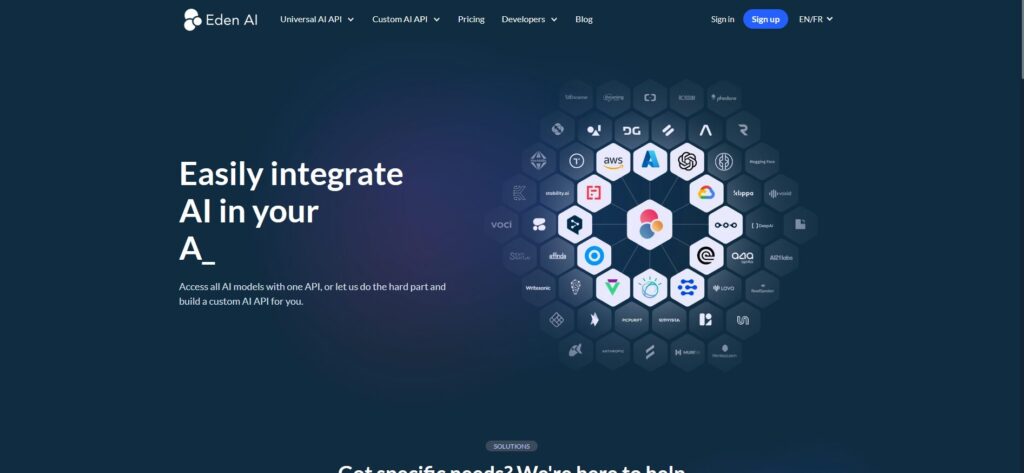
What it is: A platform that aggregates LLMs and broader AI services such as image, translation, and TTS. It emphasizes convenience across multiple AI capabilities and includes caching, fallbacks, and batch processing.
Strengths: Wide multi‑capability surface; fallbacks/caching; pay‑as‑you‑go optimization.
Trade‑offs: Less emphasis on a transparent marketplace that foregrounds per‑provider price/latency/uptime before you route. Marketplace‑first teams often prefer ShareAI’s pick‑and‑route workflow.
Best for: Teams that want LLMs plus other AI services in one place, with convenience and breadth.
3) OpenRouter
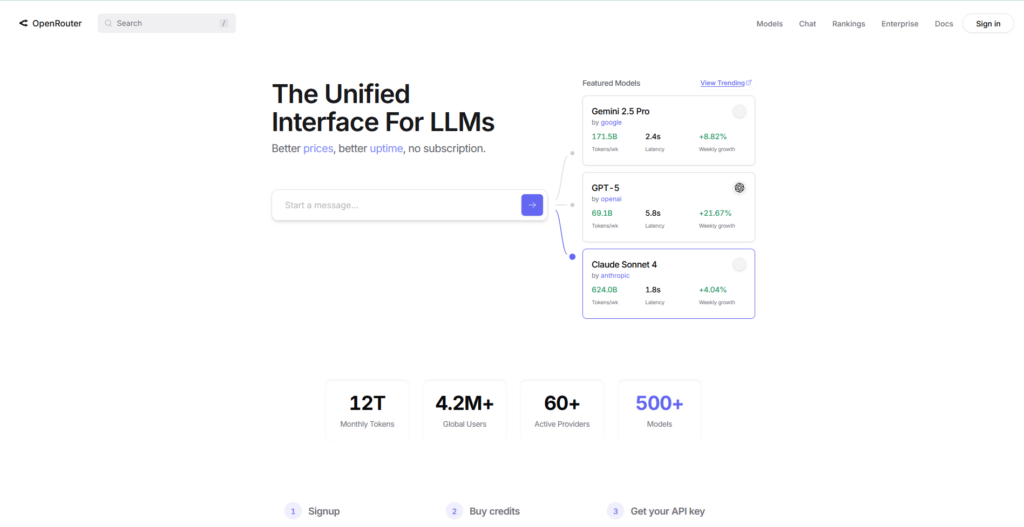
What it is: A unified API over many models. Developers value the breadth and familiar request/response style.
Strengths: Wide model access with one key; fast experimentation.
Trade‑offs: Less focus on a provider marketplace view or enterprise governance depth.
Best for: Quick trials across models without deep control-plane needs.
4) LiteLLM
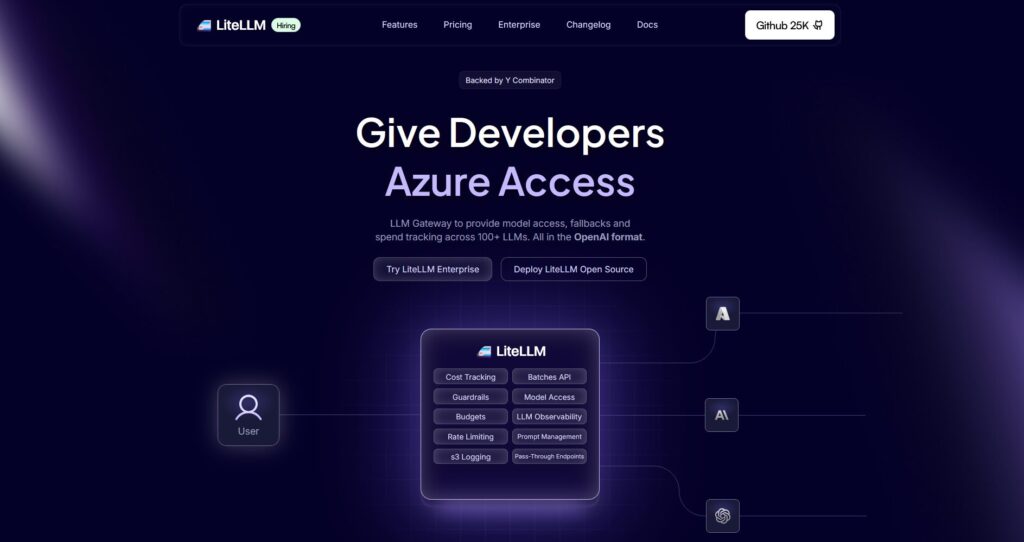
What it is: A Python SDK + self‑hostable proxy that speaks an OpenAI‑compatible interface to many providers.
Strengths: Lightweight; quick to adopt; cost tracking; simple routing/fallback.
Trade‑offs: You operate the proxy and observability; marketplace transparency and community economics are out of scope.
Best for: Smaller teams that prefer a DIY proxy layer.
Repo: LiteLLM on GitHub
5) Unify
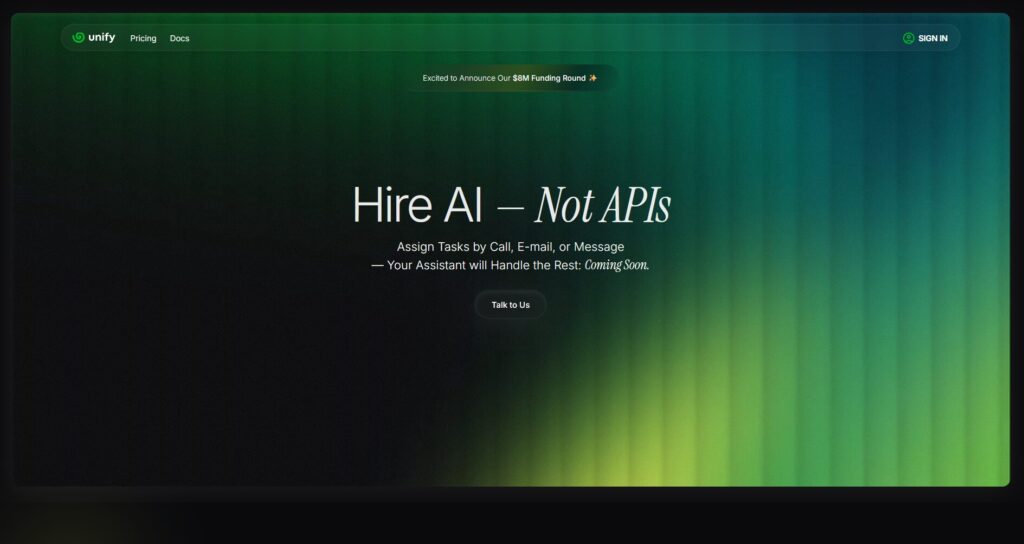
What it is: Performance‑oriented routing and evaluation to choose better models per prompt.
Strengths: Quality‑driven routing; benchmarking and model selection focus.
Trade‑offs: Opinionated surface area; lighter on marketplace transparency.
Best for: Teams optimizing response quality with evaluation loops.
Website: unify.ai
6) Portkey
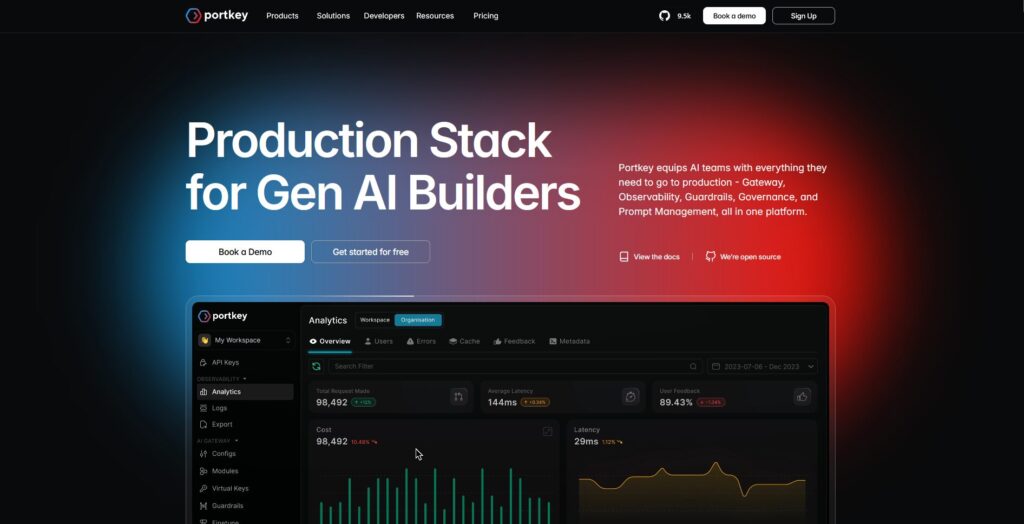
What it is: An AI gateway with observability, guardrails, and governance features—popular in regulated industries.
Strengths: Deep traces/analytics; safety controls; policy enforcement.
Trade‑offs: Added operational surface; less about marketplace‑style transparency.
Best for: Audit‑heavy and compliance‑sensitive teams.
Feature page: Portkey AI Gateway
7) Orq AI
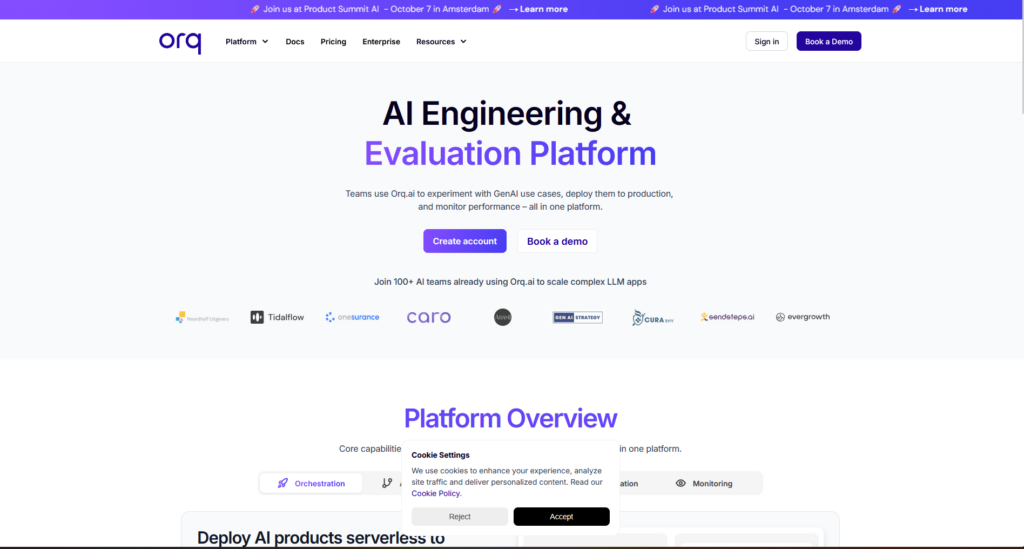
What it is: Orchestration and collaboration platform that helps teams move from experiments to production with low‑code flows.
Strengths: Workflow orchestration; cross‑functional visibility; platform analytics.
Trade‑offs: Lighter on aggregation‑specific features like marketplace transparency and provider economics.
Best for: Startups/SMBs that want orchestration more than deep aggregation controls.
Website: orq.ai
Kong AI vs ShareAI vs Eden AI vs OpenRouter vs LiteLLM vs Unify vs Portkey vs Orq: quick comparison
| Platform | Who it serves | Model breadth | Governance & security | Observability | Routing / failover | Marketplace transparency | Pricing style | Provider program |
|---|---|---|---|---|---|---|---|---|
| ShareAI | Product/platform teams who want one API + fair economics | 150+ models across many providers | API keys & per‑route controls | Console usage + marketplace stats | Smart routing + instant failover | Yes (price, latency, uptime, availability, provider type) | Pay‑per‑use; compare providers | Yes — open supply; 70% to providers |
| Kong AI Gateway | Enterprises needing gateway‑level governance | BYO providers | Strong edge policies/plugins | Analytics | Proxy/plugins, retries | No (infra tool) | Software + usage (varies) | N/A |
| Eden AI | Teams needing LLM + other AI services | Broad multi‑service | Standard controls | Varies | Fallbacks/caching | Partial | Pay‑as‑you‑go | N/A |
| OpenRouter | Devs wanting one key across models | Wide catalog | Basic API controls | App‑side | Fallback/routing | Partial | Pay‑per‑use | N/A |
| LiteLLM | Teams wanting self‑hosted proxy | Many providers | Config/key limits | Your infra | Retries/fallback | N/A | Self‑host + provider costs | N/A |
| Unify | Teams optimizing per‑prompt quality | Multi‑model | Standard API security | Platform analytics | Best‑model selection | N/A | SaaS (varies) | N/A |
| Portkey | Regulated/enterprise teams | Broad | Governance/guardrails | Deep traces | Conditional routing | N/A | SaaS (varies) | N/A |
| Orq | Cross‑functional product teams | Wide support | Platform controls | Platform analytics | Orchestration flows | N/A | SaaS (varies) | N/A |
Pricing & TCO: how to compare real costs (not just unit prices)
Teams often compare $/1K tokens and stop there. In practice, TCO depends on retries/fallbacks, model latency (which changes usage), provider variance, observability storage, and evaluation runs. Transparent marketplace data helps you choose routes that balance cost and UX.
# Simple TCO model (per month) TCO ≈ Σ (Base_tokens × Unit_price × (1 + Retry_rate)) + Observability_storage + Evaluation_tokens + Egress Prototype (10k tokens/day): Your cost is mostly engineering time—favor fast start (Playground, quickstarts). Mid‑scale (2M tokens/day): Marketplace‑guided routing/failover can trim 10–20% while improving UX. Spiky workloads: Expect a higher effective token cost from retries during failover; budget for it.
Migration guide: moving to ShareAI from common stacks
From Kong AI Gateway
Keep gateway‑level policies where they shine, add ShareAI for marketplace routing and instant failover. Pattern: gateway auth/policy → ShareAI route per model → measure marketplace stats → tighten policies.
From OpenRouter
Map model names; verify prompt parity; shadow 10% of traffic; ramp to 25% → 50% → 100% as latency/error budgets hold. Marketplace data makes provider swaps straightforward.
From LiteLLM
Replace self‑hosted proxy on production routes you don’t want to operate; keep LiteLLM for dev if desired. Compare ops overhead vs. managed routing benefits.
From Unify / Portkey / Orq
Define feature‑parity expectations (analytics, guardrails, orchestration). Many teams run a hybrid: keep specialized features where they’re strongest, use ShareAI for transparent provider choice and failover.
Security, privacy & compliance checklist (vendor‑agnostic)
- Key handling: rotation cadence; minimal scopes; environment separation.
- Data retention: where prompts/responses are stored, for how long, and how they’re redacted.
- PII & sensitive content: masking, access controls, and regional routing to honor data locality.
- Observability: how prompts/responses are logged and whether you can filter or pseudonymize.
- Incident response: escalation paths and provider SLAs.
Developer experience that ships
Time‑to‑first‑token matters. Start in the Playground, generate an API key, then ship with the API Reference. For orientation, see the User Guide and latest Releases.
Prompt patterns worth testing: set per‑provider timeouts and backup models; run parallel candidates and pick the fastest success; request structured JSON outputs and validate on receipt; preflight max tokens or guard price per call. These patterns pair well with marketplace‑informed routing.
FAQ
Is “Kong AI” an LLM aggregator or a gateway?
Most searchers mean the gateway from Kong Inc.—governance and policy over AI traffic. Separately, “Kong.ai” is an agent/chatbot product. Different companies, different use cases.
What are the best Kong AI alternatives for enterprise governance?
If gateway‑level controls and deep traces are your priority, consider platforms with guardrails/observability. If you want routing plus a transparent marketplace, ShareAI is a stronger fit.
Kong AI vs ShareAI: which for multi‑provider routing?
ShareAI. It’s a multi‑provider API with smart routing, instant failover, and a marketplace that foregrounds price, latency, uptime, and availability before you send traffic.
Can anyone become a ShareAI provider and earn 70% of spend?
Yes. Community or Company providers can onboard via desktop apps or Docker, contribute idle time or always‑on capacity, choose Rewards/Exchange/Mission, and set prices as they scale.
Do I need a gateway and an aggregator, or just one?
Many teams run both: a gateway for org‑wide policy/auth and ShareAI for marketplace routing/failover. Others start with ShareAI alone and add gateway features later as policies mature.
Conclusion: pick the right alternative for your stage
Choose ShareAI when you want one API across many providers, an openly visible marketplace, and resilience by default—while supporting the people who keep models online (70% of spend goes to providers). Choose Kong AI Gateway when your top priority is gateway‑level governance and policy across all AI traffic. For specific needs, Eden AI, OpenRouter, LiteLLM, Unify, Portkey, and Orq each bring useful strengths—use the comparison above to match them to your constraints.
